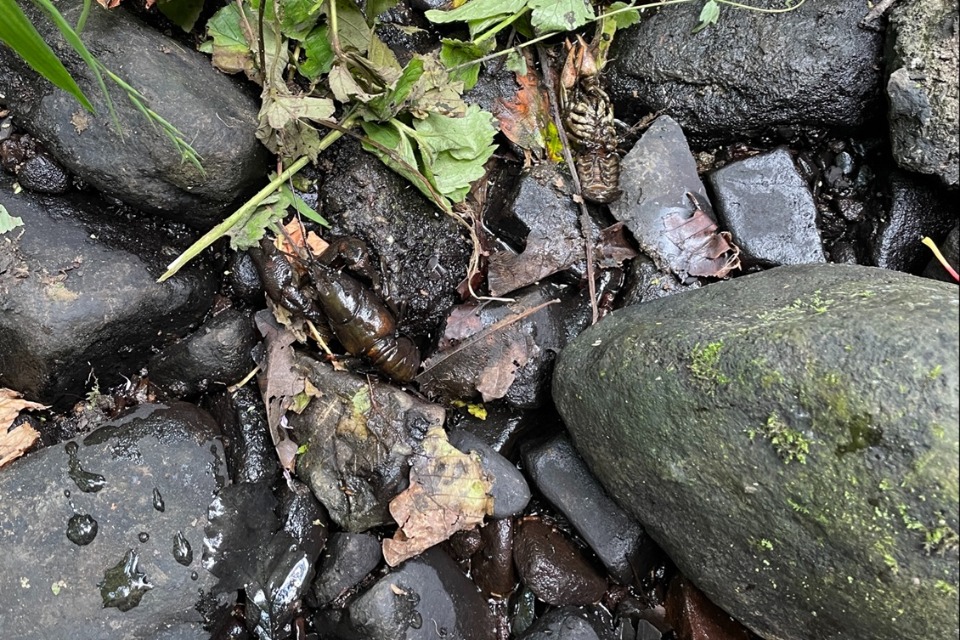A member of the public reported crayfish in distress as a riverbed dried out. The Environment Agency rescued 32 adults, including 21 females carrying eggs.
The Environment Agency's fisheries team has carried out an emergency rescue of a previously unknown population of critically endangered native white clawed crayfish at Burley in Wharfedale.
It followed a report from a member of the public about crayfish in distress in the watercourse, which was very low due to ongoing drought conditions in Yorkshire.
The team arrived to find some shallow pools with stretches dry riverbed in between them. Unfortunately, several crayfish had already died, but the team successfully rescued 32 adults, including 21 females carrying eggs (knows as 'berried' females).
White-clawed crayfish are the UK's only native, freshwater crayfish. They play a vital role in keeping our waterways clean and as a source of food for other native species.

Environment Agency
Critically Endangered
The species used to be common across Yorkshire but are now critically endangered, largely due to being out competed by the larger, more aggressive American signal crayfish.
The crayfish have been moved to the Environment Agency's licensed quarantine facility hosted by York Gate Gardens near Leeds, until they pass a health check and can be returned to further support native crayfish conservation work in Yorkshire.
Claire Barrow, the Environment Agency's drought lead in Yorkshire, said:
The finding of a previously unknown population of the endangered white clawed crayfish is great news, despite the challenging drought conditions.
The Wharfe catchment unfortunately has long established and extensive populations of the invasive signal crayfish, which puts the native species at risk by out competing them and spreading disease.
This year saw the driest spring since 1893, and Yorkshire is currently in drought. Periods of dry weather and low rivers can have serious consequences for the environment and wildlife and we'd urge people to report fish and wildlife in distress so we can take action.
The Environment Agency's Incident Hotline can be contacted on 0800 807060.






